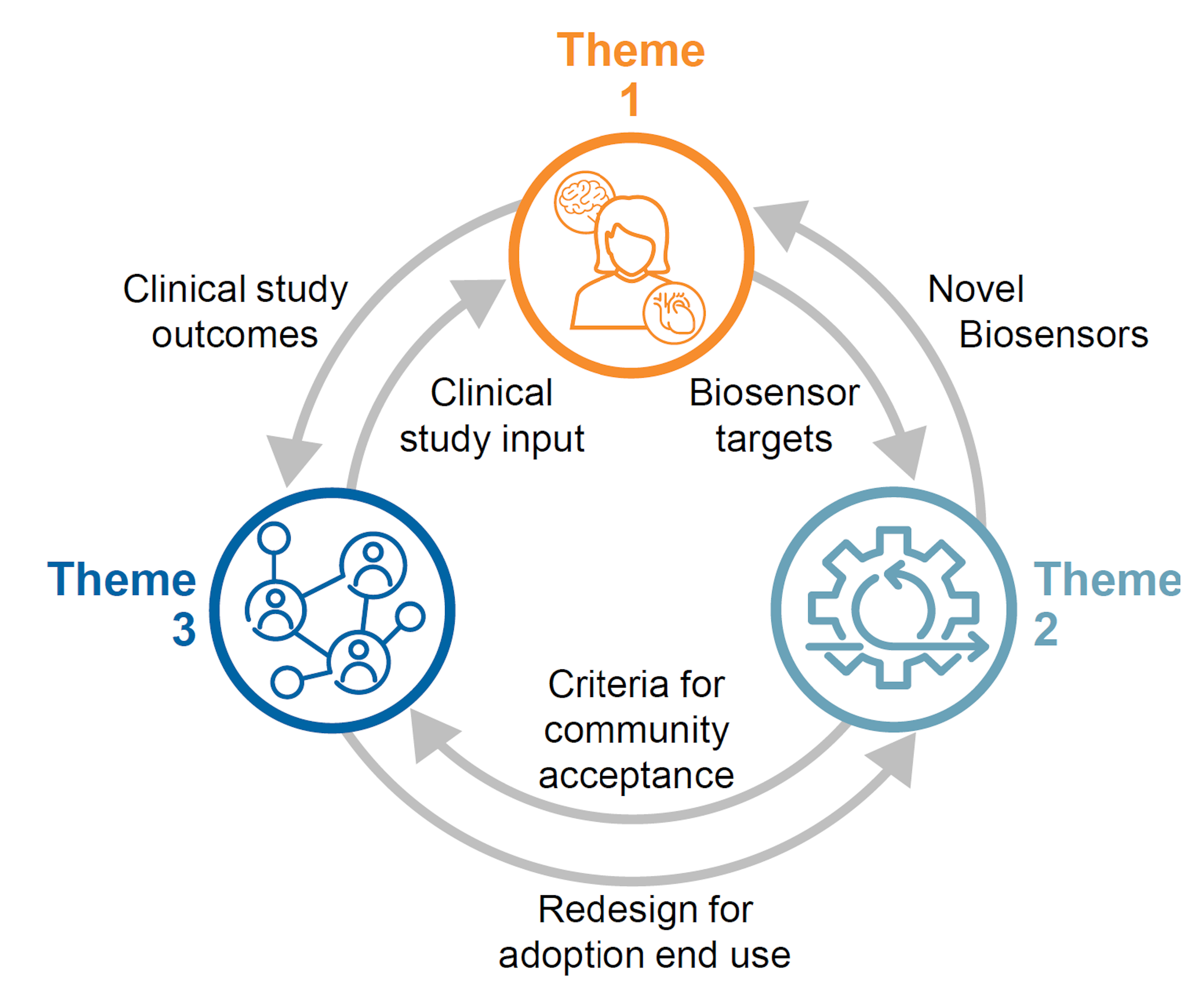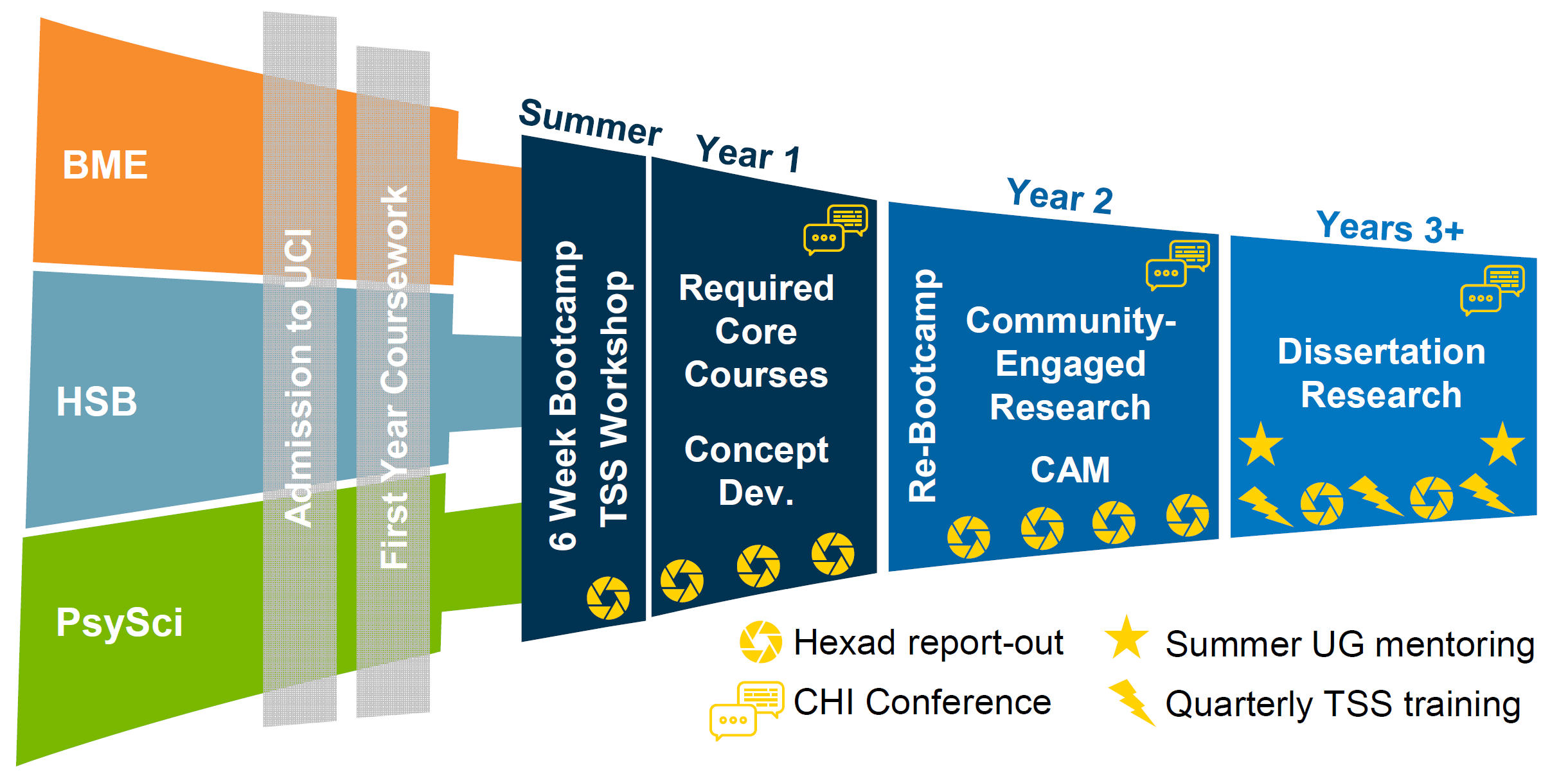What is the BEST Program?
BEST graduates will become the next generation of scholars and leaders able to recognize, develop, and test technological solutions for cardiovascular health. The BEST educational paradigm will integrate biomedical engineering, behavioral science, and psychological science fundamentals and approaches. Our overarching goals are to:
- Build a robust and diverse STEM workforce that understands, develops, and tests innovative solutions to identity-based cardiovascular health and healthcare. The interdisciplinary research training will develop BEST trainees’ creativity and expertise in understanding the root causes of cardiovascular health; novel approaches to accurate, unbiased, and accessible health technology design and innovation; and the social, behavioral, and economic influences on technology for cardiovascular health care.
- Become a national model of an interdisciplinary and integrated research and education partnership and of promoting the recognition of and solutions to the impact of identity on human health and health care as well as professional success in STEM.
- Prepare BEST trainees for a wide range of career paths through engagement with community partners and industry partners. With focused and integrated training in team science, mentoring, and communication, and a systems-based understanding of the health and health care ecosystem, BEST alumni will have the tools to transform academia, industry, and government.
- Build the required institutional support to expand the sustainability and scalability of BEST beyond the NRT proposal’s lifespan, including institutionalizing best practices in team science, mentoring effectiveness, and communication through partnership with UCI’s Team Science Acceleration Lab, the National Research Mentoring Network, and ActivatetoCaptivateⓇ, respectively.
BEST Research: Addressing Cardiovascular Health

The BEST program’s overarching research question is: How can cardiovascular health be reduced using technology? We address this question with three interrelated research themes that span the five distinct spheres of interactions in the social ecology ecosystem. Theme 1 addresses the root causes of cardiovascular health at the individual level, as well as social determinants of health, affect physiology and biology. Theme 2 focuses on methodological approaches to develop accurate, unbiased, and accessible technologies and devices. Theme 3 considers the social, behavioral, and economic influences on technology for cardiovascular health care, identifying barriers to and facilitators of adoption and use. All themes overcome typical limitations of single-discipline biomedical engineering and social science approaches with convergent training and community-engaged practices.
The synergies among themes are a strength of the BEST program. Root causes identified either experimentally or computationally by Trainees in Theme 1 could become the focus of novel biosensor design by Trainees in Theme 2. In turn, devices developed and tested by Trainees in Theme 2 can be used to investigate root causes of cardiovascular health in Theme 1. Criteria to improve novel devices and technologies identified through community-engaged rotations in Theme 2 will inform analysis of the factors that encourage or discourage adoption and use of new devices and technologies in Theme 3. In turn, analysis of the factors that encourage or discourage adoption and use of new devices and technologies in Theme 3 will inform Trainees engaged in device and technology development in Theme 2.
The outcomes of clinical studies in Theme 1 can inform analyses in Theme 3; and the factors identified in Theme 3 can be measured in clinical studies in Theme 1. Collectively, the convergent research themes proposed will help to advance cardiovascular health, creating a positive and lasting impact on cardiovascular health and healthcare. In addition these themes will enable the interdisciplinary and convergent training of the next generation of scientists and engineers who will transform cardiovascular health and healthcare.
BEST Training: Interdisciplinary Graduate Training
The BEST program is designed to engage students throughout their graduate training with activities that include bootcamps and workshops, core courses, seminars, and opportunities for professional development, mentoring undergraduates, and engaging with industry. Using the science of team science, BEST will train a community of graduate students in the departments of biomedical engineering, health, society and behavior, and psychological sciences. BEST graduates will become the first members of a new profession with common skills (the things that people within the profession do); knowledge (understandings that people in the profession share); values (beliefs that members of the profession hold); self-conception (how profession members see themselves); and epistemology (ways of justifying actions as legitimate within the profession) trained to recognize and solve problems in health with technology.
